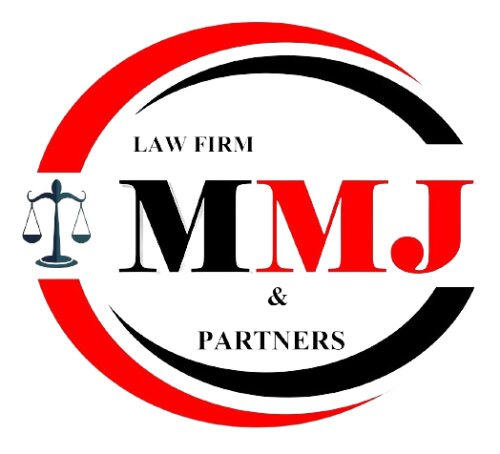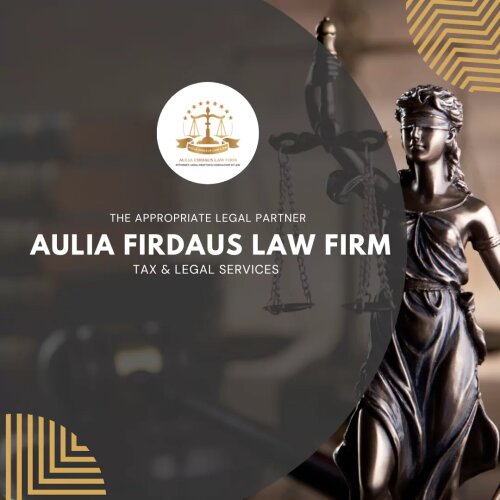Best New Business Formation Lawyers in Indonesia
Share your needs with us, get contacted by law firms.
Free. Takes 2 min.
Or refine your search by selecting a city:
List of the best lawyers in Indonesia
About New Business Formation Law in Indonesia
New business formation in Indonesia is governed by a combination of local and national regulations. Indonesia provides various legal structures for businesses, including limited liability companies (Perseroan Terbatas or PT), sole proprietorships, partnerships, foreign-invested companies, and representative offices. The Investment Coordinating Board (BKPM) is a pivotal body facilitating business investments, ensuring compliance with the regulations. Foreign investors must adhere to the Negative Investment List, which outlines areas where foreign ownership is limited or prohibited. Understanding these regulations is crucial for successful business operations in Indonesia.
Why You May Need a Lawyer
Forming a new business in Indonesia involves navigating complex regulations and bureaucratic processes that can be challenging without legal assistance. Common situations where legal help is beneficial include:
- Determining the most suitable business structure for your needs and understanding the legal implications of each.
- Navigating the application process for necessary licenses and permits.
- Ensuring compliance with foreign investment laws and understanding the implications of the Negative Investment List.
- Drafting and reviewing business contracts and agreements.
- Handling the legal aspects of hiring local and foreign employees.
- Understanding tax obligations and structuring your business accordingly.
- Dealing with real estate and property acquisition for your business premises.
Local Laws Overview
Key aspects of local laws relevant to new business formation in Indonesia include:
- Business Licenses and Permits: Companies must obtain appropriate licenses depending on their industry, such as trading licenses or manufacturing permits.
- Foreign Investment Regulations: Foreign business entities must comply with restrictions as per the Negative Investment List and often need a local partner or agent.
- Corporate Taxation: The Indonesian tax system requires businesses to pay corporate income tax, value-added tax (VAT), and other related taxes.
- Employment Law: Regulations concerning foreign worker permits, local employee benefits, and labor conditions must be adhered to.
- Intellectual Property Rights: Businesses are encouraged to register trademarks, patents, or copyrights to protect their intellectual property.
Frequently Asked Questions
1. What types of business entities can foreigners establish in Indonesia?
Foreigners can establish a Limited Liability Company (PT PMA) for general business activities, a representative office for administrative purposes, or joint ventures with local partners.
2. How long does the business formation process usually take?
The process of establishing a business may take anywhere from a few weeks to several months, depending on completeness of paperwork, sector-specific license requirements, and adherence to regulations.
3. What is the Negative Investment List?
The Negative Investment List specifies sectors where foreign investment is restricted or prohibited, requiring foreign investors to collaborate with a local partner in certain industries.
4. What are the minimum capital requirements for establishing a company?
The minimum capital requirement varies depending on the type of entity and the level of foreign ownership, with higher requirements for foreign-invested entities (PT PMA).
5. Do I need local partners to open a business in Indonesia?
Foreign investment regulations may necessitate local partners in certain sectors, as outlined by the Negative Investment List, though it is not universally required across all sectors.
6. How can I protect my intellectual property in Indonesia?
Businesses should register their trademarks, copyrights, and patents with the Indonesian Directorate General of Intellectual Property for protection against infringement.
7. What employment laws should I be aware of when hiring in Indonesia?
Key employment regulations include the need for work permits for foreign employees, adherence to minimum wage standards, and provision of employee benefits as per local laws.
8. Are there specific tax obligations for new businesses?
Businesses are required to comply with regular tax obligations, including corporate income tax, value-added tax (VAT), and withholding tax, among others, based on their activities.
9. What are the steps to obtain necessary business permits and licenses?
Steps include applying through the OSS (Online Single Submission) system, gathering sector-specific approvals, and registering with the appropriate governmental bodies based on business activities.
10. Can I repatriate profits from my Indonesian company to my home country?
Yes, but repatriation of profits is subject to Indonesian currency transaction regulations, and taxes may apply. Consultation with a tax advisor is recommended to ensure compliance.
Additional Resources
Below are valuable resources for further assistance:
- Investment Coordinating Board (BKPM) - Provides guidelines and support for business formation and investment in Indonesia.
- Ministry of Law and Human Rights - For corporate registration and legal information.
- Indonesian Chamber of Commerce and Industry (KADIN) - Offers networking opportunities and local business insights.
- Directorate General of Intellectual Property - Assists with registration of intellectual property rights.
Next Steps
If you require legal assistance in new business formation in Indonesia, consider the following steps:
- Identify your business needs and the type of legal structure you wish to establish.
- Research and shortlist legal firms or consultants specializing in business law and foreign investment in Indonesia.
- Schedule consultations to discuss your business plan, receive professional advice, and understand the scope of services offered.
- Engage a legal counsel that aligns with your requirements to guide you through the business formation process, ensuring compliance with all legal obligations.
Lawzana helps you find the best lawyers and law firms in Indonesia through a curated and pre-screened list of qualified legal professionals. Our platform offers rankings and detailed profiles of attorneys and law firms, allowing you to compare based on practice areas, including New Business Formation, experience, and client feedback.
Each profile includes a description of the firm's areas of practice, client reviews, team members and partners, year of establishment, spoken languages, office locations, contact information, social media presence, and any published articles or resources. Most firms on our platform speak English and are experienced in both local and international legal matters.
Get a quote from top-rated law firms in Indonesia — quickly, securely, and without unnecessary hassle.
Disclaimer:
The information provided on this page is for general informational purposes only and does not constitute legal advice. While we strive to ensure the accuracy and relevance of the content, legal information may change over time, and interpretations of the law can vary. You should always consult with a qualified legal professional for advice specific to your situation.
We disclaim all liability for actions taken or not taken based on the content of this page. If you believe any information is incorrect or outdated, please contact us, and we will review and update it where appropriate.
Browse new business formation law firms by city in Indonesia
Refine your search by selecting a city.
















